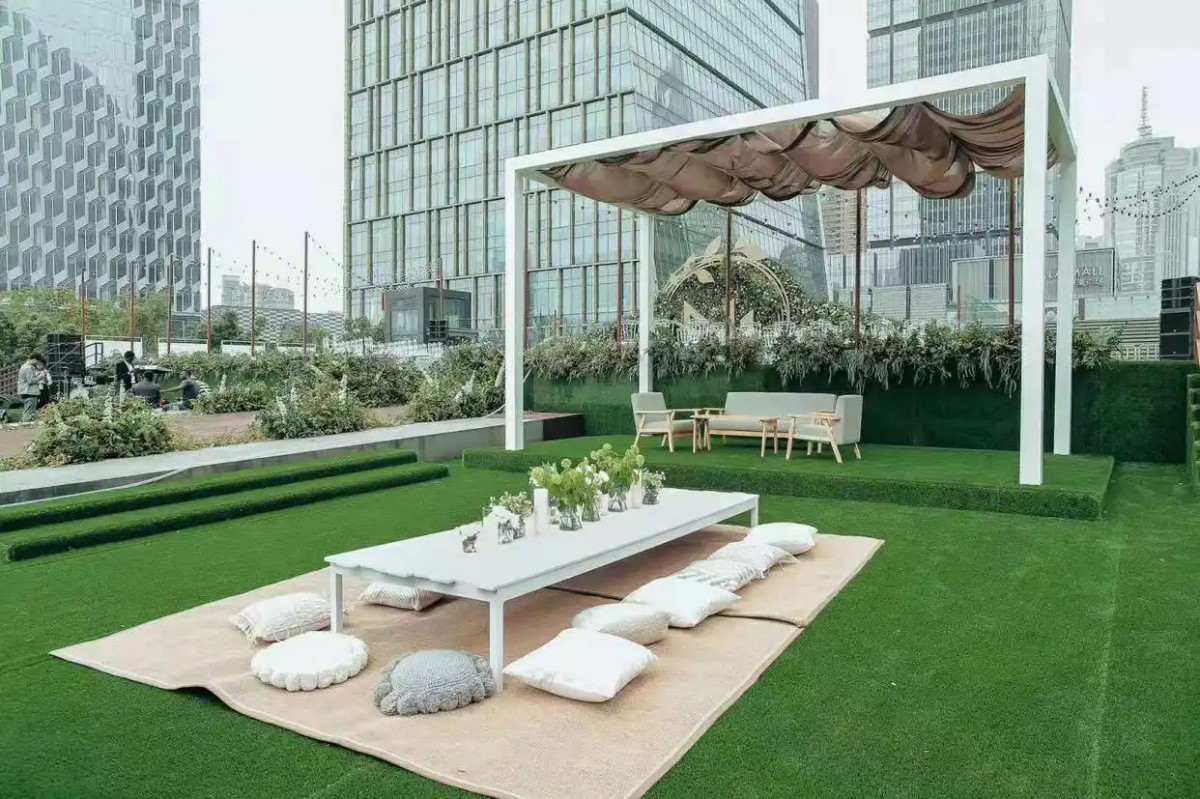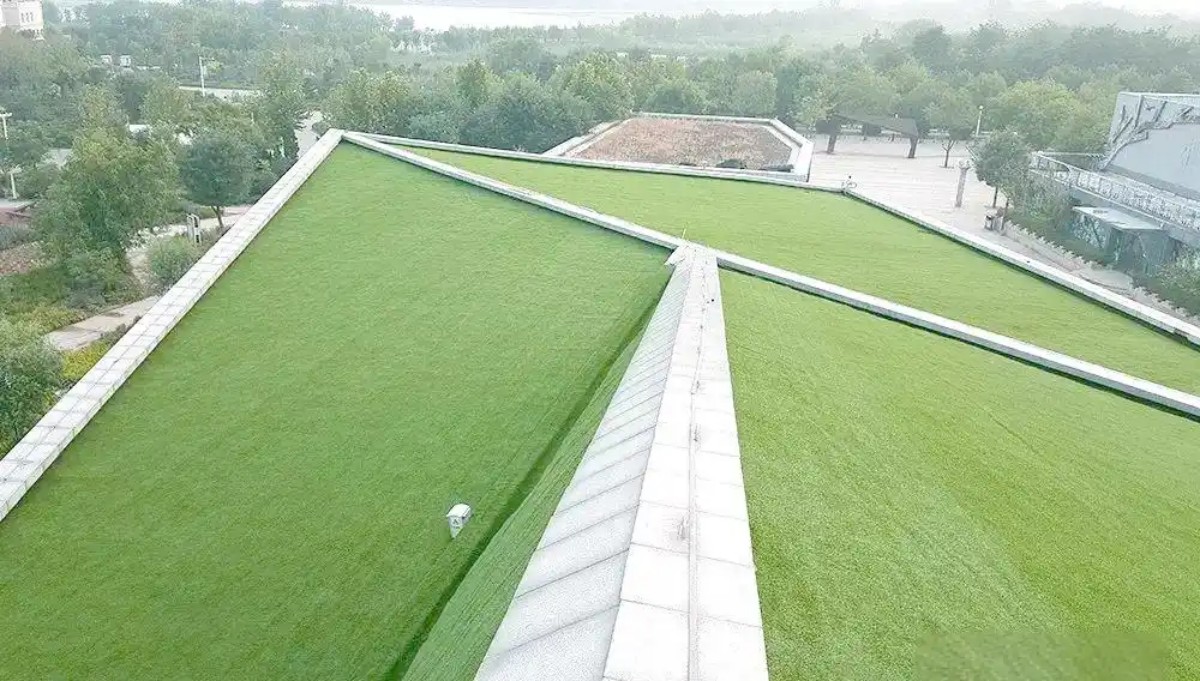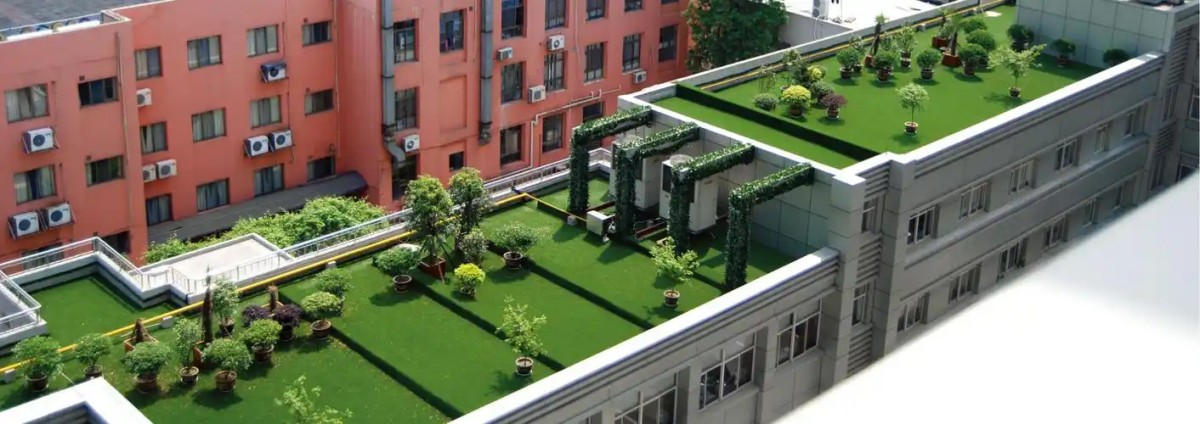News Center
Shandong Zhensure New Materials Technology Industry Co., Ltd.
Transforming underutilized rooftops into functional and beautiful spaces is a growing trend in urban design, and artificial grass has emerged as a key component in these projects. For property developers, building managers, and landscaping distributors, understanding the multifaceted benefits of rooftop synthetic turf is essential for tapping into this lucrative market. Beyond the immediate visual appeal, a professionally installed artificial turf rooftop system delivers significant practical advantages, from substantial energy savings to the creation of valuable new recreational areas, offering a strong return on investment.

1. Superior Thermal Insulation and Cooling
During peak summer, a conventional rooftop can reach scorching temperatures of up to 60°C (140°F), acting as a massive heat source that radiates downward into the building. This heat gain forces air conditioning systems to work overtime, leading to exorbitant energy costs. A layer of synthetic grass acts as a highly effective insulating barrier. The grass blades and thatch layer reflect sunlight and absorb significantly less heat than traditional surfaces like concrete or tar, substantially reducing the rooftop's temperature. This natural cooling effect benefits top-floor residents and lowers overall energy consumption.
2. Protects the Roof Structure
Prolonged exposure to intense UV rays and extreme temperature fluctuations causes roofing materials to expand and contract, leading to cracks, warping, and premature aging. Furthermore, acid rain can gradually erode and degrade the roof surface. Installing a durable synthetic grass system shields the waterproofing membrane from these damaging elements. By mitigating thermal shock and chemical erosion, the turf extends the lifespan of the roof, minimizing maintenance needs and preventing costly structural repairs down the line.
3. Creates Versatile Recreational Spaces
A rooftop is valuable real estate that often goes unused. Installing artificial grass instantly converts this barren area into a safe, clean, and inviting green space. It becomes an ideal surface for a variety of applications, such as rooftop terraces for hotels and restaurants, recreational areas for office buildings and schools, or peaceful garden retreats for residential complexes. This added functionality enhances the property's value and appeal.

4. Low Maintenance and All-Weather Usability
Unlike natural grass, which requires constant watering, mowing, and soil management on a rooftop, high-quality artificial turf demands minimal upkeep. It eliminates the need for irrigation systems and chemical treatments. A simple rinse with water is typically sufficient to keep it clean. Additionally, advanced drainage systems in the turf backing ensure quick water removal after rainfall, preventing puddles and making the space usable again almost immediately.
5. Consistent Aesthetics and Environmental Benefits
Rooftop artificial grass remains lush, green, and perfectly manicured all year round, regardless of weather conditions or foot traffic. It provides a consistently beautiful aesthetic that enhances the building's profile. From an environmental standpoint, it contributes to reducing the urban heat island effect, requires zero pesticides, and saves a significant amount of water, aligning with modern green building standards.

In conclusion, the strategic application of artificial grass on rooftops is more than a landscaping upgrade; it is a smart investment in a building's efficiency, durability, and functionality. As a leading manufacturer, Zhensure is committed to producing premium-grade synthetic turf systems engineered specifically for such demanding applications. We provide our global partners with the reliable, high-performance materials needed to successfully meet the growing demand for innovative rooftop artificial turf solutions.
Transforming underutilized rooftops into functional and beautiful spaces is a growing trend in urban design, and artificial grass has emerged as a key component in these projects.
Modern homeowners are increasingly investing in their outdoor living spaces, leading to a surge in demand for high-quality patio and garden flooring.
The global Artificial Grass market has reached a mature stage, offering a vast array of options for landscapes and sports fields.
As wood resources become increasingly scarce and environmental protection requirements grow higher, wood-plastic composite (WPC) materials—made from recycled wood flour and straw—are gaining more and more attention.
Artificial Grass has revolutionized sports surfaces, especially for paddle tennis courts, by offering a reliable and low-maintenance alternative to natural turf.